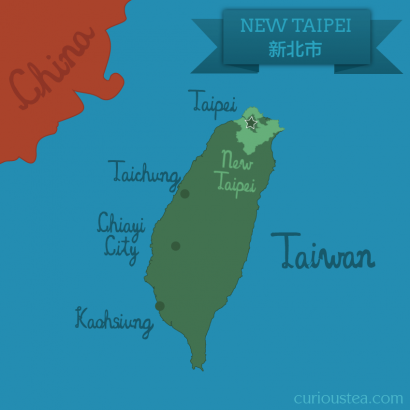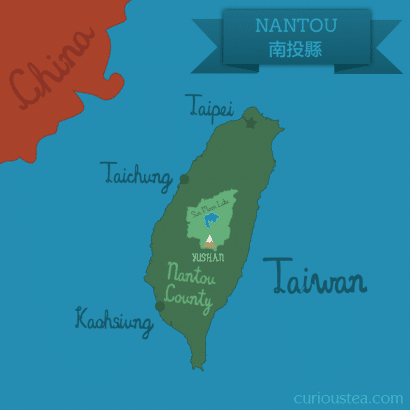Welcome to the May 2023 edition of the Curious Tea subscription! Here’s a closer look at the four exciting new teas that we are sharing with our subscribers this month.
The first light tea this month is a fresh 2023 Bi Luo Chun green tea from Sanxia District in northern Taiwan that has a complex herbaceous flavour. The second light tea is a freshly roasted version of our popular Organic Milk Oolong that undergoes complex and lengthy roasting.
For the dark side of the selection we have a fresh 2023 Hong Cha, also from Sanxia that is the black tea counterpart of the green tea above. Finally, the last tea we are featuring this month is another freshly roasted tea, this time it is a baked version of our GABA Oolong.
Our Discovery subscription boxes contain 10g taster pouches of all of the above mentioned teas. If you are a subscriber you will benefit from a 10% discount on all teas from our tea shop!
Let’s get into further detail on these teas featured in our May tea subscription boxes.
San Xia Ming Qian Bi Luo Chun
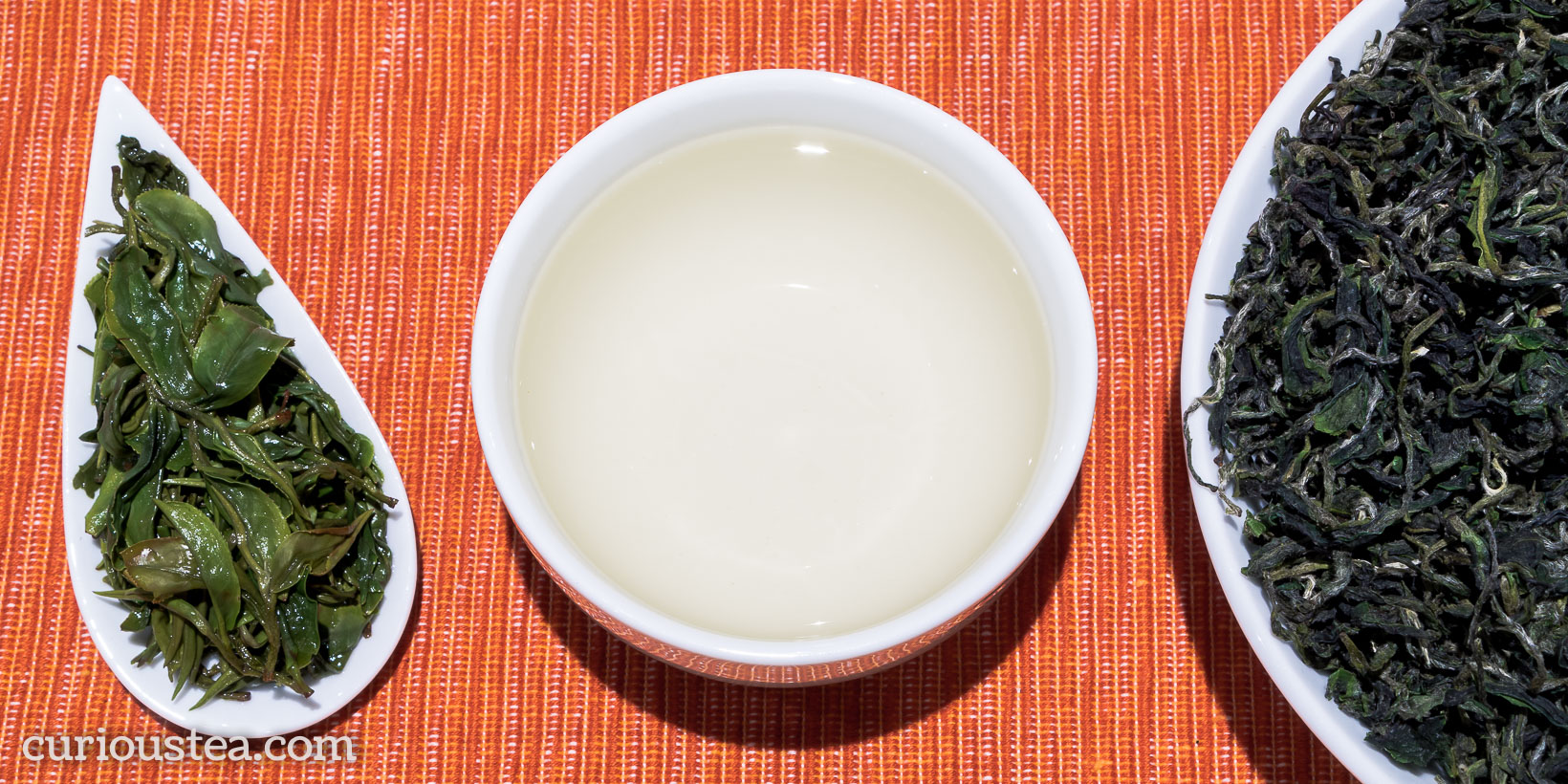
San Xia Ming Qian Bi Luo Chun (三峽明前碧螺春) is an early spring (pre-Qing Ming) green tea from Sanxia District of New Taipei City in northern Taiwan. Carefully handpicked leaves of the Qing Xin Gan Zi varietal are processed in a traditional style to create an aromatic herbaceous liquor with sweet and floral notes and a clean aftertaste. Grown at an altitude of between 300m and 400m, it was harvested and processed on 12 March 2023 by the Lee family.
Bi Luo Chun ‘Green Snail Spring’ is a classic Chinese green tea, with the original type hailing from the Dongting tea growing area of Jiangsu Province. Such is the popularity of this tea that the name became popular for other green teas made in a similar style. Typically they exhibit a tippy leaf with a coiled shape resembling a snail. Often however, the name is descriptive of the flavour profile rather than the appearance of the leaf. Such as the case in our pre-Qing Ming Bi Luo Chun from Sanxia, it is made of single leaf with some white buds but they are not coiled into the distinctive snail shape. Instead the name is attributed to the flavour, having a classic vegetal green tea taste and aromatic liquor common to other Bi Luo Chun teas.
The teas from Sanxia District are largely outliers from other Taiwanese teas in terms of picking standard and production. Unlike many other regions of Taiwan that have distinct harvest seasons and where the leaves are harvested with stalks, utilising the top 2-4 leaves and the bud, the harvest in Sanxia occurs when the leaves are picked every 10-14 days. Only the top leaves and buds are harvested, so the leaves are picked without stalk, in a style that is more common with the Mainland Chinese standard of picking. Furthermore, this tea comes from a small cooperative factory of Mr Lee. They work with about 200 very small scale growers in the area who sell their tea leaves to the factory. Depending on the quality and characteristics of each harvest the factory then decides on the best tea to make from each harvest, varying between styles such as Bi Luo Chun or Long Jing for green tea, various types of oolong or by making Hong Cha (red/black tea).
Our San Xia Ming Qian Bi Luo Chun consists of neat, tippy green leaves. It produces a bright herbaceous liquor that is aromatic, with a sweet grassy aroma. The flavours are light and clean with no astringency or dryness. The taste has a classic early spring green tea profile with fresh herbaceous flavours, floral and vegetal umami notes and a sweet mouthfeel. The aftertaste is very clean with a lasting refreshing flavour. This is an excellent green tea that will definitely appeal to fans of high grade early spring teas from Mainland China and Japan.
It is best brewed at 80°C for 2-3 minutes according to your taste and should be brewed multiple times, increasing steeping time with each brew if desired.
You can also buy this San Xia Ming Qian Bi Luo Chun green tea in our online shop.
Heritage Baked Organic Milk Oolong
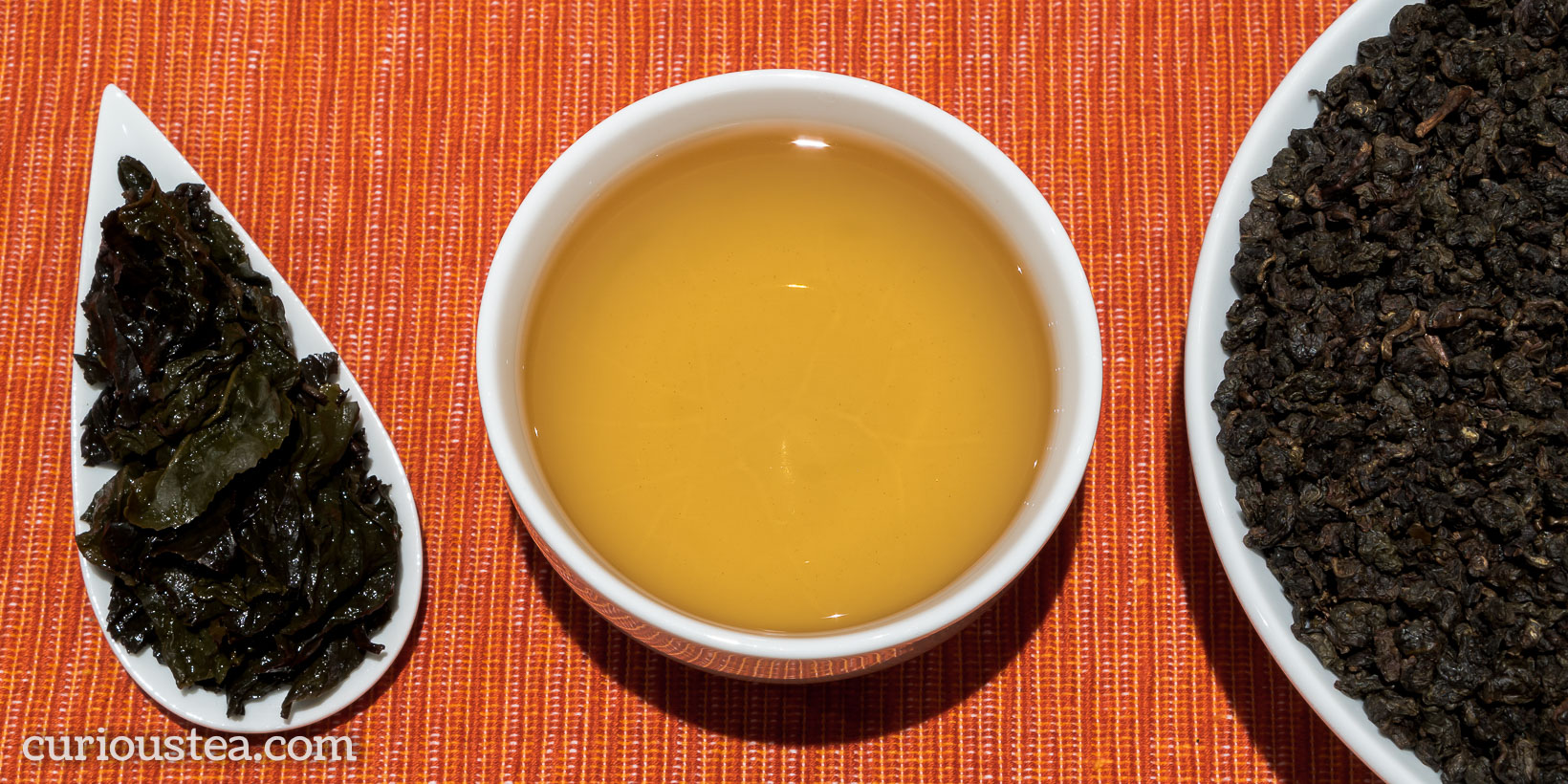
Heritage Baked Organic Milk Oolong (凍頂火候金萱烏龍茶) is a wonderfully complex oolong created from the leaves of the Jin Xuan (金萱) cultivar. This particular tea was carefully baked in a traditional manner to produce a heritage style type of tea that is not often found nowadays. The baking process is slow and time consuming, and the type of roasting employed is normally reserved for much more high end Competition Grade Dong Ding Oolong teas. The medium level of baking results in a complex flavour profile where the roasted notes do not overpower but rather compliment the original tea flavours. It is from a fully organic production located in Mingjian Township, Nantou County, Taiwan. This lot is from a November 2022 harvest and the last baking of it was in March 2023.
This Heritage Baked Organic Milk Oolong is finished by our Tea Master in a traditional style that has undergone extensive baking. It is a recreation of a type of tea she used to enjoy growing up that her late father used to make. These complex, heavier roasted oolongs that were popular in Taiwan 30+ years ago have been largely replaced by the lightly oxidised floral versions popular today. While both types have a distinct and attractive character, there is a particular appeal in the complex and skilfully crafted heritage-style teas such as this one. It is truly a labour of love and a fitting tribute to a more traditional style of Taiwanese tea.
The Jin Xuan cultivar that is used to create this oolong was developed in Taiwan in the 1980’s. It is also known as the Golden Daylily (Jin Xuan) or TRES #12, the number given to it by the Taiwan Research and Extension Station. Milk Oolong is also sometimes known as Nai Xiang (奶香) ‘Milk Fragrance’ in Chinese. Jin Xuan cultivar is very popular with farmers since the plants are more hardy and produce a higher yield. From a tea lover’s point of view, Jin Xuan is an attractive aromatic drink with a lovely sweet and creamy character.
This heritage-style Milk Oolong is sourced directly from the Tea Master in Taiwan that carries out the roasting. The tightly rolled leaves produce a medium liquor with good clarity and a light roasted aroma. The taste is supremely smooth with an overall underlying roasted flavour. The top notes are floral and quite scented. The flavour has fruity notes of golden syrup and baked pastries. Makes us think of a fruit custard bun or a peach danish! The taste is lasting, very easy-drinking and has a great comforting quality. The Jin Xuan cultivar certainly adds an overall creamy impression and mouthfeel. It is a fine example of a careful and considered baking process.
It is best brewed at 90°C for 3 minutes according to your taste and can be brewed multiple times, increasing steeping time with each next brew if desired.
You can also buy this Heritage Baked Organic Milk Oolong tea in our online shop.
San Xia Ming Qian Hong Cha
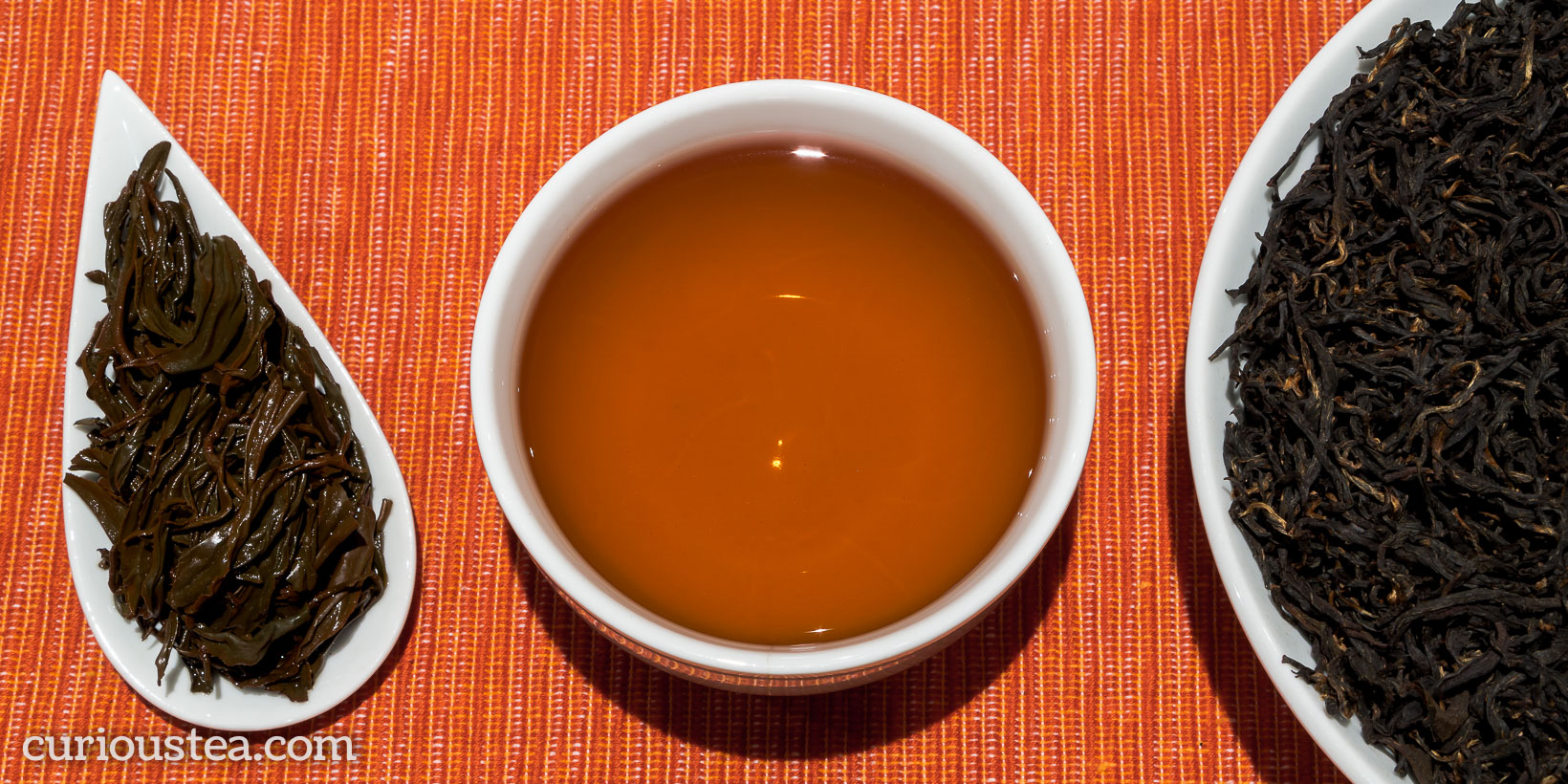
San Xia Ming Qian Hong Cha (三峽明前紅茶) is a premium grade early spring black tea from Sanxia District of New Taipei City in northern Taiwan. It is carefully handpicked and processed from the leaves of the Qing Xin Gan Zi varietal to create an attractive, smooth flavour. It produces a complex savoury flavour with a lasting lightly tannic and spicy aftertaste. Grown at an altitude of between 300m and 600m, it was harvested and processed on 8 March 2023.
While a lot of the red/black tea (Hong Cha) from Taiwan tends to have a more robust flavour due to the use of cultivars descended from assamica plants, this tea utilises the Qing Xin Gan Zi cultivar that is normally reserved for oolong production. Hence the trademark Taiwanese black tea taste that is evident in teas like our Yuchi Assamica and Yuchi Red Jade is not present in this particular Hong Cha. While there is still an aspect that is familiar, such as a light savoury edge, the overall flavour really is a wholly different experience.
The teas from Sanxia District are largely outliers from other Taiwanese teas in terms of picking standard and production. Unlike many other regions of Taiwan that have distinct harvest seasons and where the leaves are harvested with stalks, utilising the top 2-4 leaves and the bud, the harvest in Sanxia occurs when the leaves are picked every 10-14 days. Only the top leaves and buds are harvested, so the leaves are picked without stalk, in a style that is more common with the Mainland Chinese standard of picking. Furthermore, this tea comes from a small cooperative factory of Mr Lee. They work with about 200 very small scale growers in the area who sell their tea leaves to the factory. Depending on the quality and characteristics of each harvest the factory then decides on the best tea to make from each harvest, varying between styles such as Bi Luo Chun or Long Jing for green tea, various types of oolong or by making this Hong Cha.
This San Xia Ming Qian Hong Cha consists of neat dark twisted leaves that are quite tippy. It produces an aromatic liquor with a malty and savoury scent. The dark liquor has good clarity, featuring a savoury profile. The mouthwatering juicy taste has sweet, yet savoury, fruity and stony notes that remind of pomegranate molasses and tomato vine. The clean aftertaste has a pleasant touch of tannins with a lasting peppery and spicy taste. Overall, it is a balanced and milder taste when compared to other Taiwanese Hong Cha, more reminiscent of a top grade Chinese black from Fujian or Anhui.
This tea is best brewed with water at 90°C for 3 minutes and the leaves can be brewed 3+ times. For best results brew gongfu style.
You can also buy this San Xia Ming Qian Hong Cha black tea in our online shop.
Heritage Baked GABA Oolong
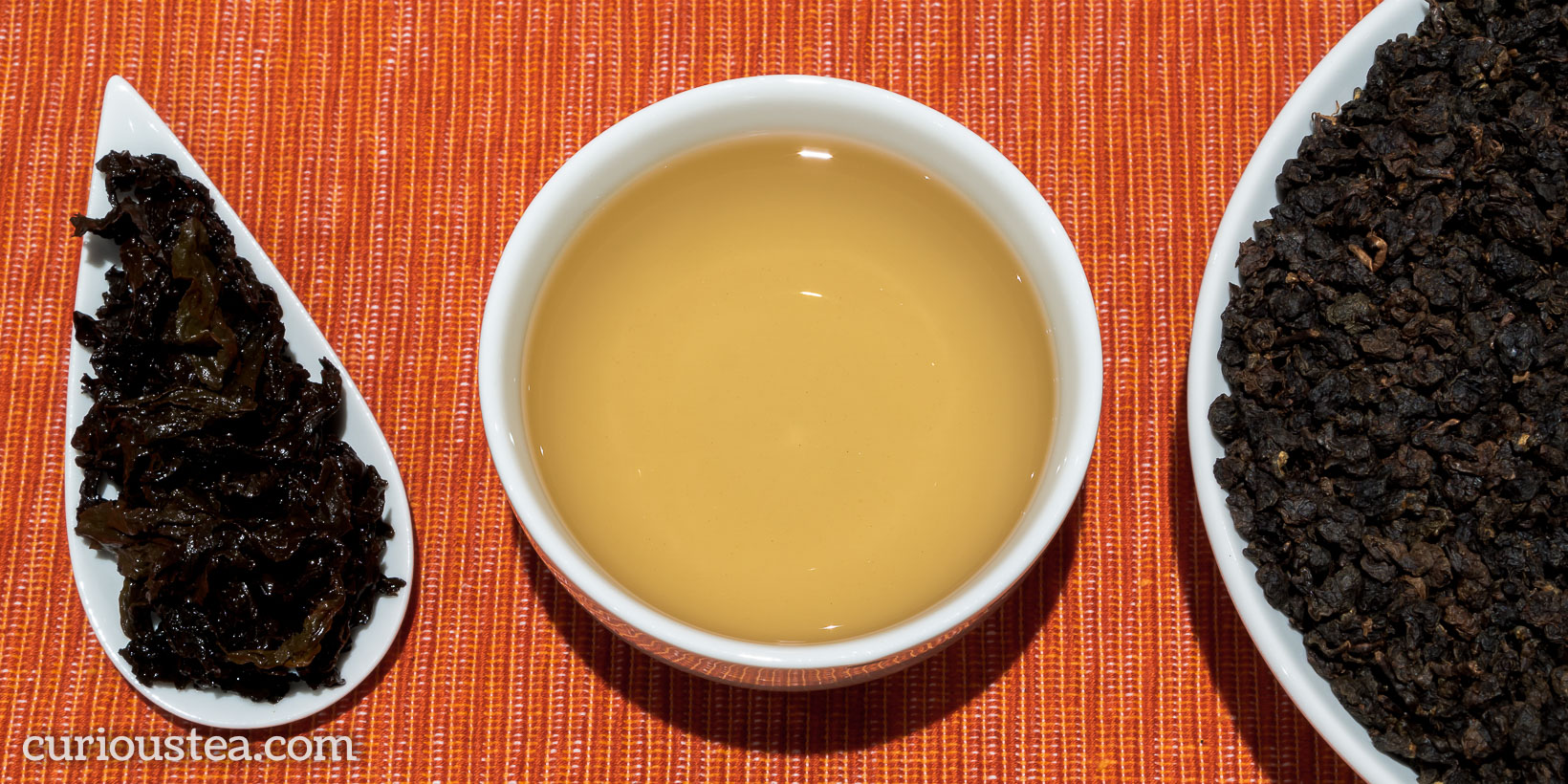
Heritage Baked GABA Oolong (凍頂火候佳葉龍) is a GABA rich tea that comes from Nantou County of Taiwan. This particular tea was carefully baked in a traditional manner to produce a heritage style type of tea that is not often found nowadays. The baking process is slow and time consuming, and the type of roasting employed is normally reserved for much more high end Competition Grade Dong Ding Oolong teas. The medium level of baking results in a complex flavour profile where the roasted notes do not overpower but rather compliment the original tea flavours. It is from a fully organic production located in Mingjian Township, Nantou County, Taiwan. The cultivar used to make this Heritage Baked GABA Oolong is the Si Ji Chun ‘Four Seasons’ (四季春) cultivar that is used for our popular Four Seasons Oolong. This lot is from a November 2022 harvest and the last baking of it was in March 2023.
This Heritage Baked GABA Oolong follows typical GABA processing: after picking the leaves are placed into a special deoxidation vacuum machine. During this processing oxygen is removed from the machine by replacing it with nitrogen and the tea is left to slowly oxidise in this unusual environment. The oxidation process happens very slowly due to lack of oxygen in the machine, increasing the GABA content and developing the characteristic GABA flavours. This also positively affects the tannins, greatly reducing them to produce a smoother, less astringent taste.To demystify the acronym in the name, GABA stands for Gamma-Aminobutyric Acid. This molecule, which is mostly found in the human brain, purportedly can reduce stress and anxiety. GABA Oolong tea is also known as Gabaron and Jia Ye Long (佳葉龍).
This Heritage Baked GABA Oolong is finished by our Tea Master in a traditional style that has undergone extensive baking. It is a recreation of a type of tea she used to enjoy growing up that her late father used to make. These complex, heavier roasted oolongs that were popular in Taiwan 30+ years ago have been largely replaced by the lightly oxidised floral versions popular today. While both types have a distinct and attractive character, there is a particular appeal in the complex and skilfully crafted heritage-style teas such as this one. It is truly a labour of love and a fitting tribute to a more traditional style of Taiwanese tea.
It is sourced directly from the Tea Master in Taiwan that carries out the roasting. The tightly rolled leaves produce a darker liquor with good clarity and a light roasted aroma with a hint of rye. The roasted taste has the typical fruity GABA notes, but less of the tangy flavour normally found in un-roasted GABA oolong teas. The baking of this tea imparts a wonderful complexity, with a finely tuned balance of flavours. The notes are of fruity rye bread, raisins and sweet malt loaf. There is a hint of rose on the top note that is most unusual. The aftertaste brings some slightly tangy flavours commonly found in GABA oolong teas. While the finish is lasting, it is quite clean.
It is best brewed at 90°C for 3 minutes according to your taste and can be brewed multiple times, increasing steeping time with each next brew if desired.
You can also buy this Heritage Baked GABA Oolong tea in our online shop.
We really do hope that you enjoy this tea selection and are looking forward to the selection in our next box. Our June 2023 subscription boxes will be a China spring special! It will feature a Snow Bud white tea from Guangxi Province and an unusual green tea from Tunxi in Anhui Province. For the darker side of the selection we have a classic Mi Lan Xiang Dan Cong from Guangdong Province and a ‘Flower Aroma’ Zheng Shan Xiao Zhong crafted from semi-wild older tea trees in Wuyi Shan, Fujian Province.
If reading this has made you curious about our teas, but you don’t yet subscribe to a monthly tea selection, you can sign up for our tea boxes in just a few clicks. We ship worldwide from London, UK.
We always love to hear from you, so if you have any questions, suggestions or just want to chat about tea, email us at contact@curioustea.com, via our Facebook page or via Twitter.

